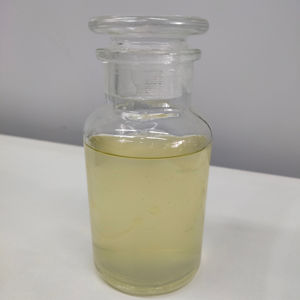Product Overview
Our company presents a comprehensive suite of specialized chemicals, each meticulously engineered to boost the productivity and effectiveness of construction materials. Fundamental to this collection are pioneering additives like concrete foaming agents, elite water reducers for enhanced workability, trailblazing aerogel technologies, and custom-formulated strength amplifiers tailored for foam concrete use. These products are thoughtfully crafted to confront the distinct hurdles of today's construction landscape, guaranteeing augmented longevity, a lesser environmental toll, and cost-effectiveness at its finest.
Concrete Foaming Agents: These agents facilitate the creation of lightweight, insulating concrete by generating stable foam, which gets evenly distributed throughout the mix. The resultant foam concrete exhibits excellent thermal insulation properties and is ideal for roof insulation, void filling, and lightweight structural components.
High-Efficiency Water Reducers: Also known as superplasticizers, these additives dramatically reduce the water content needed for a given concrete mix without compromising its workability. By doing so, they contribute to increased strength, improved durability, and enhanced finish quality of concrete structures.
Aerogels: Our advanced aerogel products offer unparalleled thermal insulation capabilities while being incredibly lightweight. Suitable for a variety of applications, from building insulation to specialized packaging, aerogels provide a next-generation solution for thermal management and energy efficiency.
Foam Concrete Strength Enhancers: Specifically developed to augment the mechanical properties of foam concrete, these enhancers ensure that despite its lightweight, the final product achieves the necessary strength for load-bearing structures. They are vital for applications where both low density and high strength are essential requirements.
Company Profile
Cie-china is professional in lightweight concrete and foam concrete solutions. We can supply concrete foaming agent, superplasticizer, aerogel and foam concrete strength enhancer for lightweight concrete mix, CLC blocks all over the world. Send us an email or click on the needed products to send an inquiry.
Payment Term:
L/C, T/T, Western Union, Paypal, Credit Card etc.
Shipment Term:
By sea, by air, by express, as customers request.
Storage conditions:
1) Store in a dry environment at room temperature.
2) Avoid damp and high temperature.
3) Use immediately after opening the inner packing bag.
FAQ:
Q1:What is the primary benefit of using a concrete foaming agent?
A:The primary benefit lies in producing lightweight, insulated concrete suitable for applications requiring reduced weight and improved thermal insulation.
Q2: How do high-efficiency water reducers affect the concrete's strength?
A:By reducing the water-to-cement ratio, these reducers significantly increase the compressive strength and durability of the concrete.
Q3:What makes aerogels unique among insulation materials?
A:Aerogels stand out due to their combination of extremely low density, high porosity, and superior thermal insulation properties, making them one of the most efficient insulation materials available.
Q4: Can foam concrete be strengthened for load-bearing applications?
A:Yes, by incorporating our strength enhancers, foam concrete can achieve the necessary strength for load-bearing structures without compromising on its lightweight nature.
Q5: Are these products environmentally friendly?
A:Our products are designed with sustainability in mind. We strive to offer solutions that not only improve construction efficiency but also minimize environmental impact through reduced material usage and enhanced energy efficiency during a structure's lifetime. However, specific environmental considerations may vary between products, and we recommend reviewing each product's data sheet for detailed information.
-
Anti-shock fireproof thermal insulation nano aerogel felt tape is designed specifically to protect against shock and ensure the performance of new energy cars and pipelines. The material is made from a combination of advanced engineering and high-quality materials that provide excellent heat insulation properties while also being non-toxic and effective in preventing rust.
-
thermal insulation refers to the use of thermal films or coatings to provide insulation to building structures. These materials can be made from various materials such as聚氨酯 (PVC), feltboard, plastic film, and other types of synthetic fibers.
-
The Concrete Water Reducing Polycarboxylate Superplasticizer (PCPS) is a new type of plastic that has been developed to reduce the amount of pollution caused by plastic waste. PCPS can be used in various applications such as packaging materials, consumer electronics, and construction materials.
-
The parameter of a ceramic fiber aerogel blanket can vary depending on the specific requirements and conditions for use. However, some common parameters that may be relevant to evaluate include:
-
The application of imported microsphere foam agents in printing, dyeing, and leather can be optimized by considering the following parameters:
-
Potassium methosilicate is an impermeable agent used in wall waterproofing. It can be applied to surfaces that need protection from water, such as floors, walls, and other materials.
-
The RJ-H80 is a concrete waterproofing additive that helps to improve the permeability of concrete and provide better resistance to water damage. It is designed to be used in combination with other products to create a comprehensive waterproofing solution for building projects.
-
The parameters for creating Factory Supply Nanoparticles Silica Aerogel Powder can vary depending on the specific requirements of the product being produced. However, some common parameters that may be relevant include:
-
La propiedades de un concrete防水 adm模仿 polycarbonate. La materia子里 se encuentra una pollicarboníótica (PC) que protege la superficie del escondimiento de las más nubiles materiales. La cantidad de PC de un concrete puede variar según su relación con el peso del混凝土, pero en general se suele utilizar 30% - 60% de PC para cubrir una superficie de 1-2 mm.










